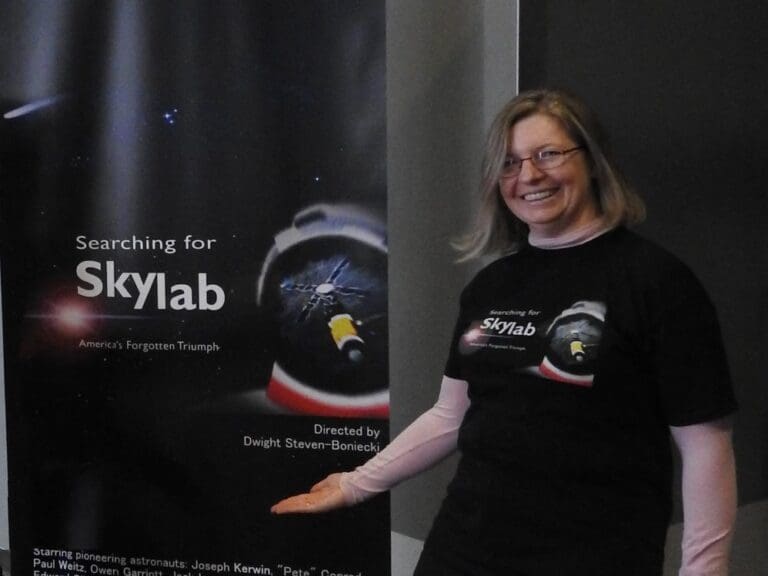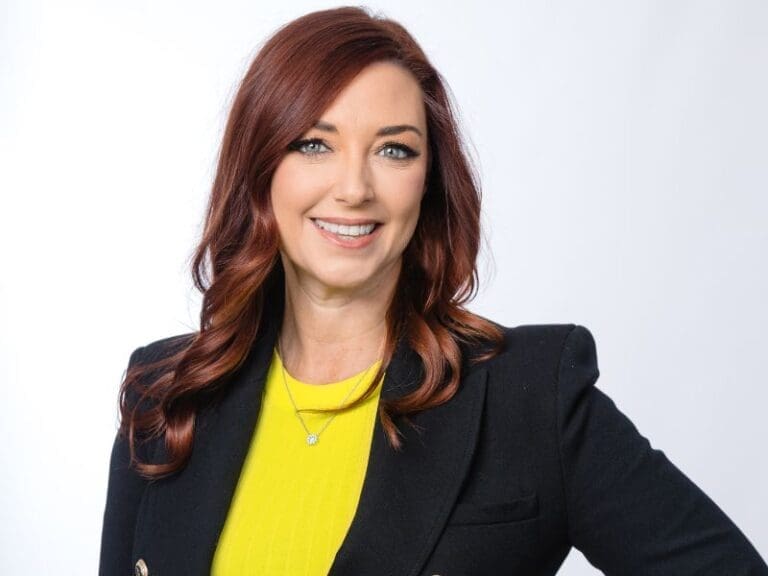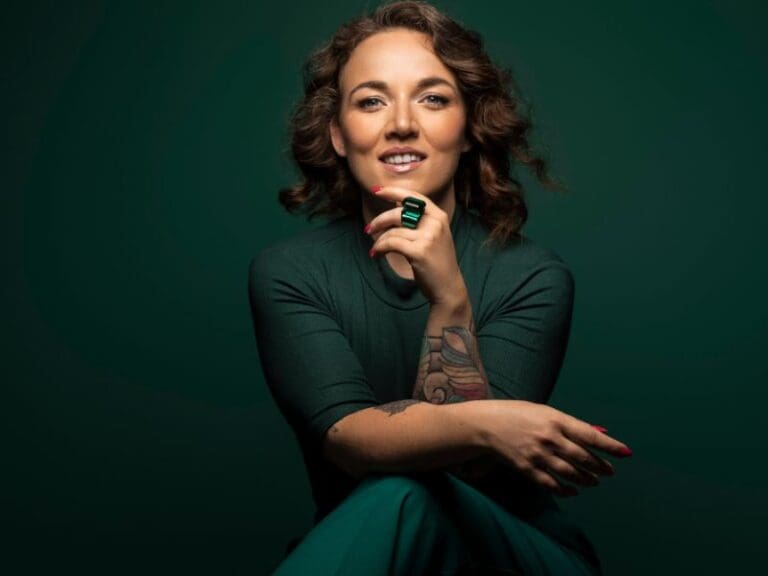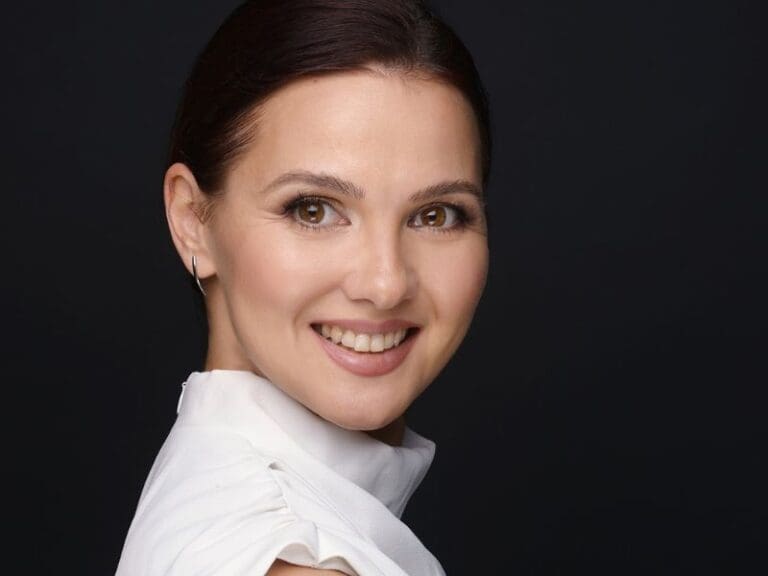ALEX IS A PASSIONATE TRAINING AND BUSINESS CONSULTANT WITH OVER 20 YEARS’ EXPERIENCE IN INTERNATIONAL BROADCASTING, BUSINESS ANALYSIS & TRAINING, AND PRODUCTION TECHNOLOGY.
Over the years, Alex has lead several successful large system implementations (Landmark / Vision) and training with the biggest names in the industry, such as RTL, Sony, NBCU and Disney. Her biggest project to date is the production of Searching for Skylab, America’s Forgotten Triumph, the first feature film ever made about Skylab, America’s first space station. This multi-award-winning historical document captures the memories of the astronauts, engineers and their families and presents them with rarest NASA archive material researched for over 15 years.
HOW DID YOU LAND YOUR CURRENT ROLE? WAS IT PLANNED?
I approached the company at a trade fare and left my details. I was invited for a talk, but despite leaving great impressions on both sides, the company requirements didn’t fit my offer. We kept loosely in touch and I was contacted for talks, because the need for my services arose.
WHAT ARE THE KEY ROLES IN YOUR FIELD OF WORK, AND WHY DID YOU CHOOSE YOUR CURRENT EXPERTISE?
When creating software solutions, you need people who understand the business, in addition to understanding how the particular software works, well enough to be able to find solutions that will cater to the customer’s needs. The solutions you’re asked to come up with can be internal to one system or combine several systems. You need to be able to plan entire software implementations or upgrades, including trainings. You need to know how to present your solutions to management on all levels and people with various levels of understanding of the software, ranging from none to expert knowledge. Typically, you will also be asked to train users on your solution or maybe more. Though I have always been interested in broadcasting, I also had longed to be a teacher. I didn’t realise it when I first started out, but this passion had already pushed me towards training my colleagues on intricate software solutions. As the broadcasting industry was one of the fastest-developing and technology-advanced working environments, the need for software staff training and support was also growing. I found my niche.
DID YOU (OR DO YOU) HAVE A ROLE MODEL IN TECH OR BUSINESS IN GENERAL?
I once joined a sales seminar of NLS by Marc Galal, a German sales trainer who kept 150+ people actively learning for 9-10+ hours per day, keeping this pace for up to 5 days non-stop. I admired his effectiveness. I am also keeping an eye out for advice from Simon Sinek and Tony Robbins, both of whom I admire greatly, together with Oprah Winfrey and Michelle Obama.
More recently, I’ve been closely involved with NASA astronauts and legends, whose achievements and approach to life & work inevitably lit a fire of admiration in me. I won’t call myself a space fan and I never thought of them as my role models, but now that you ask, I see how much they’ve been inspiring me every day.
WHAT ARE YOU MOST PROUD OF IN YOUR CAREER, SO FAR?
1. Having produced the feature film “Searching for Skylab, America’s Forgotten Triumph”, built a team around it and created a number of technical solutions supporting the communication of the story to the world, who started to pay attention to the Skylab mission since at an unprecedented scale.
2. Receiving outstanding feedback from clients and individuals who closely worked with me. That very much includes the astronauts(!) – although in this case for a project outside of my typical area of expertise.
You often lose sight of how you are being perceived by people working with you and around you when you rush to complete your day-to-day tasks.
WHAT DOES AN AVERAGE WORKDAY LOOK LIKE FOR YOU?
This very much depends on the current client’s needs, their location and the level of difficulty of the tasks themselves. I am an extreme night owl, so supporting projects across many time zones is the norm. No matter how many business experts advise on it, starting my day before 10AM is a rare occurrence, but then it’s a marathon until I drop off typically around 2 AM. Somewhere in-between I’ll take breaks for lunch, dinner, an obligatory walk to clear my head and 2 hours devoted to my family. I try to keep my days below 12h of working time, but being a workaholic, this can include weekends. Since this line of work involves mostly my brain, I use various meditation techniques before going to sleep to switch off quickly.
ARE THERE ANY SPECIFIC SKILLS OR TRAITS THAT YOU NOTICE COMPANIES LOOK FOR WHEN YOU’RE SEARCHING FOR ROLES IN YOUR FIELD?
Typically, they would like you to already have experience with the key system they would like you to work with. Typically, when you’ve been working with the industry long enough, you gain at least some idea about them.
HAS ANYONE EVER TRIED TO STOP YOU FROM LEARNING AND DEVELOPING IN YOUR PROFESSIONAL LIFE, OR HAVE YOU FOUND THE TECH SECTOR SUPPORTIVE?
Sadly, many times. It was my underlying reason for becoming independent and avoiding employment when possible. But I also experienced a very direct denial from a female colleague assigned by the client to train me on a software I knew little about. On the other hand, I also experienced very supportive clients – never employers – who would include me in special workshops thought to be relevant to my projects, but that’s usually been what management imagines you need, rather than what you really need. Overall, I’d say unless you’re proactive yourself, I found very little support offered in this sector, beyond unspecific offers to some generic platforms hosting generic courses.
HAVE YOU EVER FACED INSECURITIES AND ANXIETIES DURING YOUR CAREER, AND HOW DID YOU OVERCOME THEM?
Many times, if not always. It’s difficult for me to feel confident, unless I’ve worked with a same system for 2+ years, or unless I know I’m working with an expert willing to share their expertise with me. The only way I was able to help overcome these feelings was by increasing my self-study time and asking more questions to as many experts as possible.
ENTERING THE WORLD OF WORK CAN BE DAUNTING. DO YOU HAVE ANY WORDS OF ADVICE FOR ANYONE FEELING OVERWHELMED?
Work as much if not more on your confidence and assertiveness than you do on your tech skills. The better you are, the more confidence you will require to assert yourself and be heard.
WHAT ADVICE WOULD YOU GIVE OTHER WOMEN WANTING TO REACH THEIR CAREER GOALS IN TECHNOLOGY?
In my experience, women are usually their own biggest enemies. The most upsetting and harmful behaviour I ever experienced in the tech industry was by other women. My advice would be that of supporting one another would benefit women in tech in general, but frankly, I don’t believe that any advice can change women’s reasons for their venomous behaviour towards other women. It happens in all areas of life, and tech industry is not immune.








